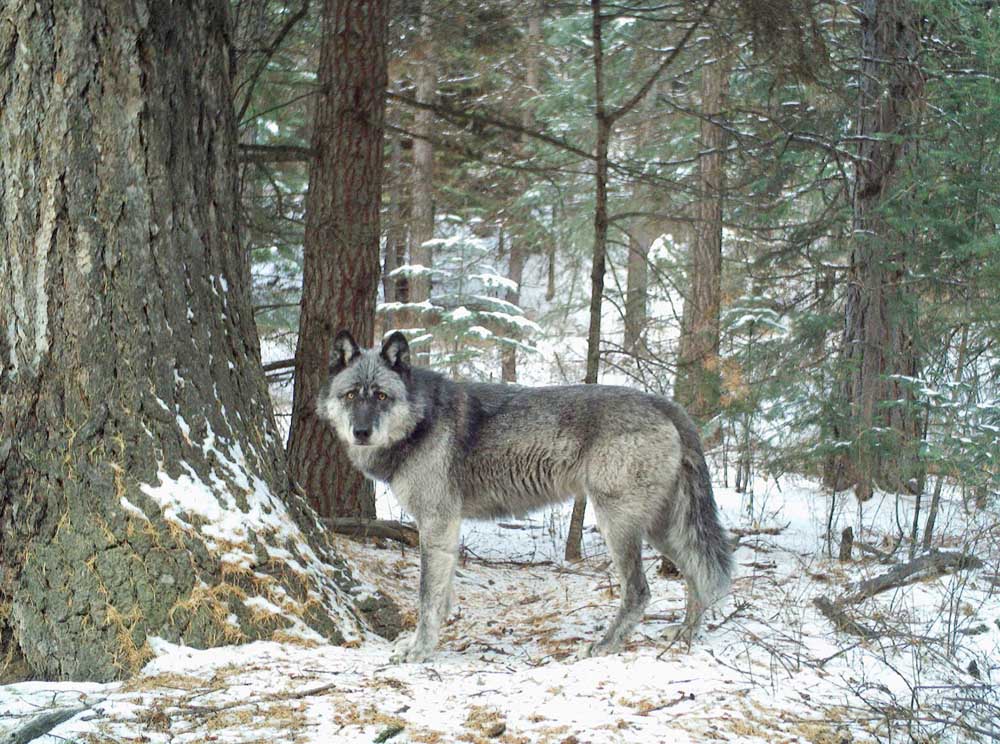Environmental groups oppose $1 million wolf compensation bill
Published 7:00 am Thursday, February 10, 2022

- Environmental nonprofits oppose a bill to provide ranchers with an additional $1 million in compensation for wolf problems.
SALEM — Environmental groups oppose providing Oregon ranchers with an additional $1 million in compensation for wolf problems, arguing the bill sends a bad message about the predators.
Supporters of House Bill 4127 counter that as wolves spread across the state, it’s necessary to devote more money to pay ranchers for lost livestock and for preventive measures.
“We need to ensure this fund doesn’t go dry,” said Rep. Bobby Levy, R-Echo, referring to the Wolf Management Compensation and Proactive Trust Fund created in 2011.
“We have over twice as many confirmed depredations as we saw in 2020,” Levy said, noting that wolves killed 41 cows, 23 sheep, 9 goats and a guard dog last year.
Based on previous levels of compensation, that means ranchers would need more than $750,000 in compensation for last year’s confirmed losses, she said.
For the current biennium, Oregon has $400,000 per year in federal and state money authorized for wolf compensation, said Jonathan Sandau, special assistant to the director at the Oregon Department of Agriculture.
On average over the past three years, the wolf compensation fund has annually received $425,000 in requests and paid out $185,000, Sandau said.
At least 30% of the funds must be dedicated to prevention, but usually that proportion is much higher, hovering at about 70% per year, he said.
Coalitions of environmental nonprofit groups have come out against HB 4127, saying it will provide funds for missing livestock not necessarily killed by wolves.
The Oregon Conservation Network, a coalition of 30 organizations, opposes “throwing more money at missing livestock,” partly because it will conflate wayward animals with wolf depredations, said Julie McGraw, the network’s representative at a recent House Agriculture, Land Use and Water Committee hearing.
“The more it appears that wolves are killing livestock, the worse it is going to be in terms of the quality of the relationship with people trying to raise livestock,” she said.
The number of livestock that have allegedly gone missing due to wolves far surpasses the number of confirmed depredations, said Julie Moser, wildlife program coordinator for the Oregon Wild nonprofit.
Meanwhile, livestock go missing for any number of reasons, so those claims for compensation aren’t verifiable, Moser said.
“Blaming wolves for any unaccounted livestock not only superficially inflates wolf-livestock conflict but it perpetuates a problematic stigma about wolves,” she said.
Critics of the bill also argued the wolf compensation fund is prone to misuse and should be reformed, while adding more money to it will create a “moral hazard” by encouraging ranchers not to look for missing animals.
“Making the fund easier to abuse is not a solution,” said Bethany Cotton, conservation director for the Cascadia Wildlands nonprofit.
The bill’s supporters pointed out that despite the critics’ focus on missing livestock, the added funding would go to the wolf compensation program as a whole.
“There’s a lot of conjecture on this, but there are really no facts,” said Rep. David Brock-Smith, R-Port Orford.
With wolf depredations reaching a record level in 2021, it’s worth adequately funding the wolf compensation program to encourage acceptance of state policies for the species, said Rep. Mark Owens, R-Crane.
“It’s a trend that’s starting to possibly erode the social tolerance we started to develop with the wolf management plan,” Owens said of rising depredations. “Nothing in this bill changes the wolf management plan. Nothing in this bill harms wolves. In fact, this bill is there to support that social tolerance of wolf interactions with our public.”
Wolves cause problems for the livestock industry that go beyond depredations, such as lower conception rates and weight loss, said Todd Nash, president of the Oregon Cattlemen’s Association and a Wallowa County commissioner.
“If we paid for the missing livestock and the confirmed depredations, it wouldn’t come close to capturing the cost incurred by ranchers,” Nash said. “If there’s going to be fraud in the system, the fraud is that we have a compensation system and there are not funds available.”






